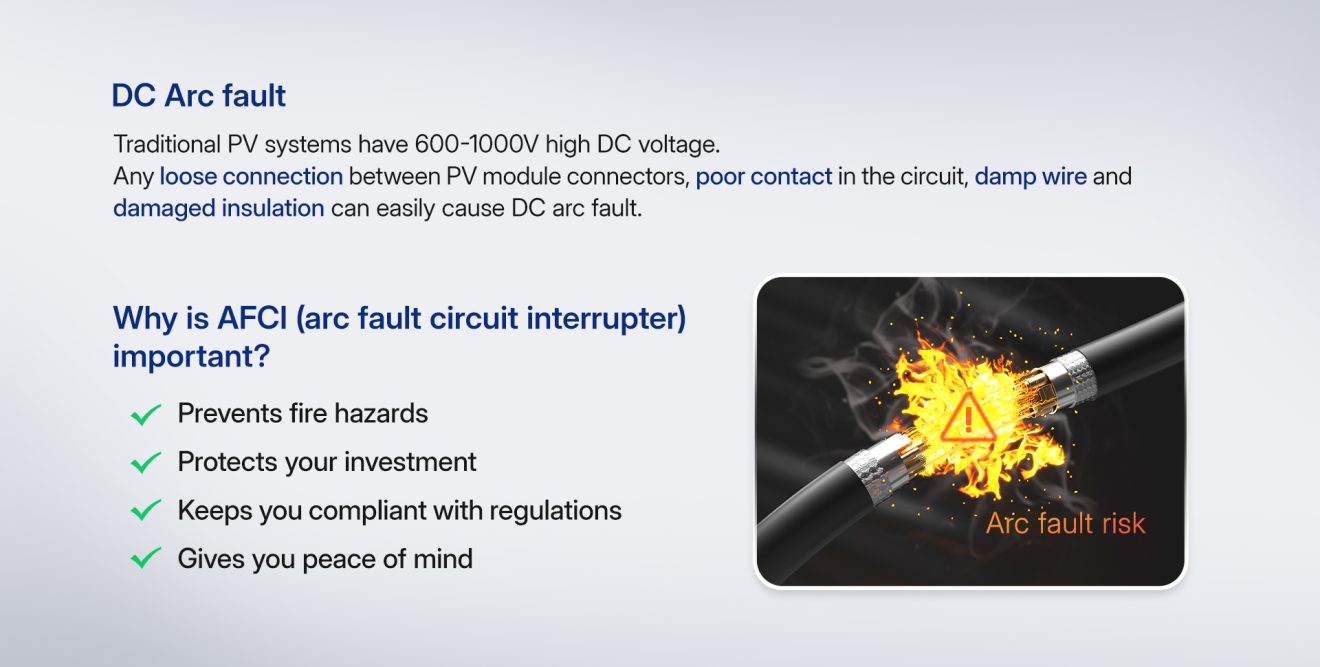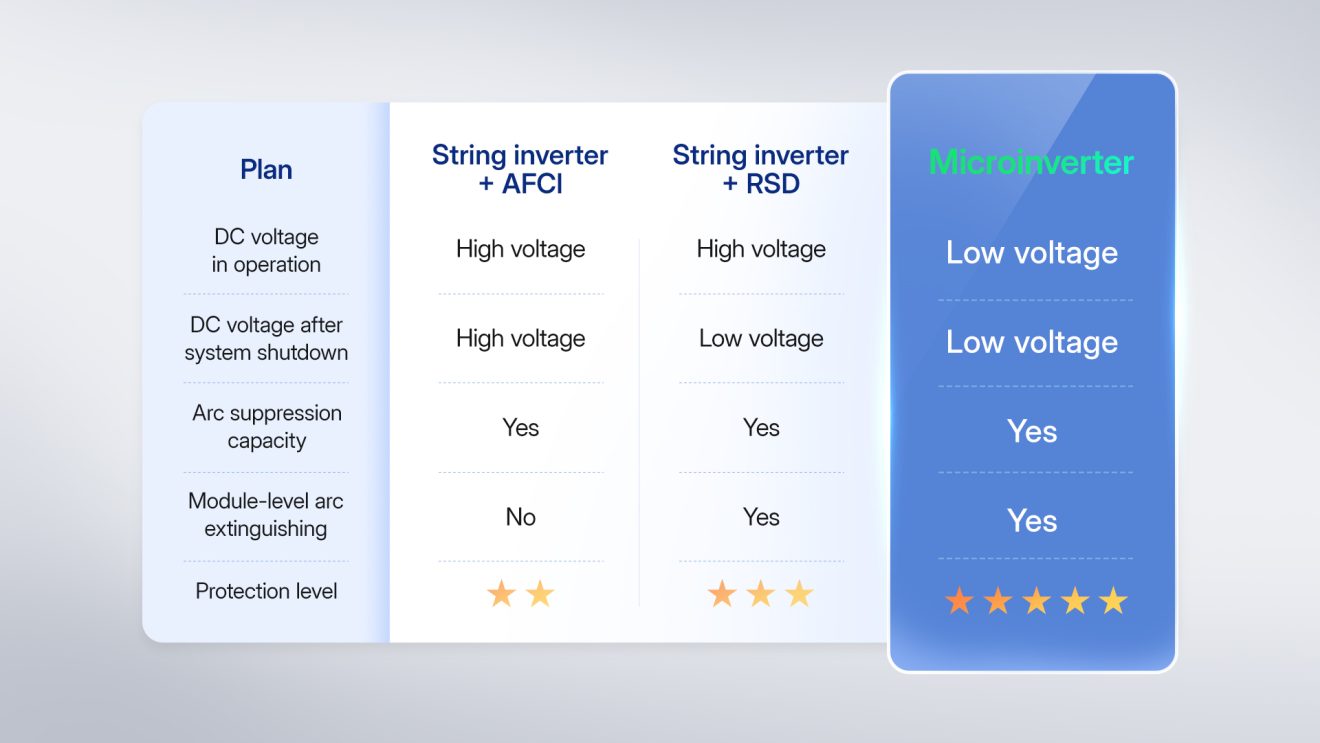February 21, 2025
What is AFCI and why does it matter to your solar PV system?
Did you know that AFCI (Arc Fault Circuit Interrupter) technology can significantly enhance the safety of your solar PV system? Discover how AFCI technology helps boost your solar system safety by preventing dangerous arc faults.

Subscribe to our newsletter andget the latest news!


